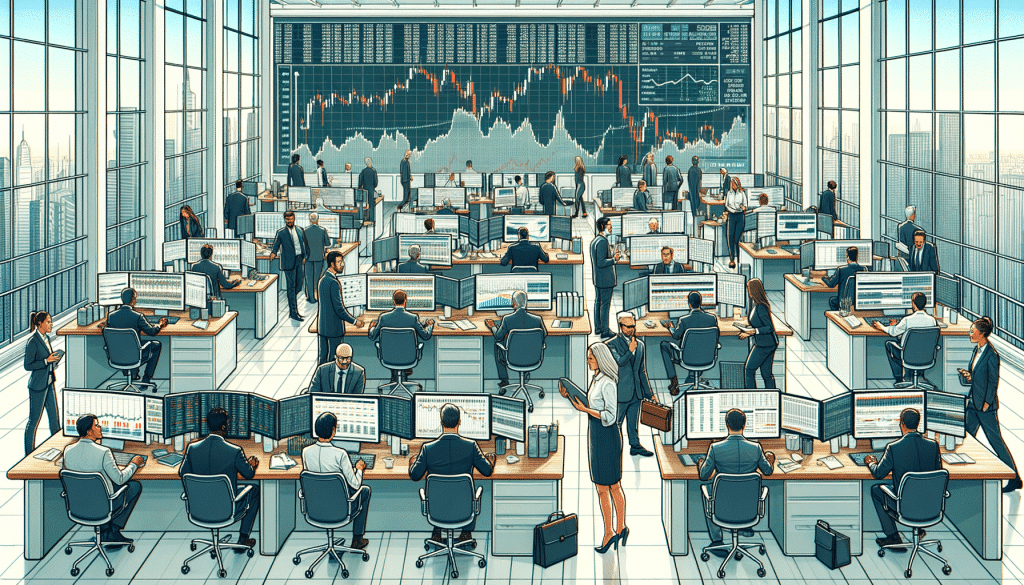The Different Trading Desks at an Investment Bank

In the intricate world of finance, investment banks function as the backbone of the global economy. Central to their operations are the various trading desks, each with a distinct role and function. This article aims to provide an in-depth understanding of these trading desks at an investment bank, primarily focusing on the keyword, ‘The Different Trading Desks at an Investment Bank’.
The Role of a Trading Desk
Before we delve into the specific types of trading desks, let’s briefly define what a trading desk is. Essentially, it’s a desk where the buying, selling, and managing of securities takes place. They serve as the fulcrum for transactions between investors, corporations, and government bodies. Now, let’s get more in-depth about the different types of trading desks and their functions.
Fixed-Income Trading Desks
One common type of trading desk you’ll find in an investment bank is the Fixed-Income Trading Desk. They primarily handle bonds – both corporate and government – and other fixed-income securities. This desk is chiefly concerned with interest rate products and credit products, thereby playing a significant role in risk management and profit-making pursuits for the bank.
Equities Trading Desks
Next up is the Equities Trading Desk. These professionals engage in the buying and selling of shares. From blue-chip stocks to smaller growth companies, equity traders have a broad market to navigate. They need to be well-versed in market trends and indicators to optimise these trades.
Commodities Trading Desks
Commodities Trading Desks are another integral part of an investment bank. These traders deal with physical commodities like gold, oil, and agricultural products, or their related financial products. They play a vital role not only in trading but also in hedging strategies for their clients.
Foreign Exchange (FX) Trading Desks
FX Trading Desks specialise in buying, selling, and trading currencies. They operate in a market that is open 24 hours a day, making it one of the most volatile and active trading desks. Their role is crucial in a world where businesses and investment strategies are increasingly global.
Derivatives Trading Desks
Finally, we have the Derivatives Trading Desks. This desk deals with financial contracts whose value is derived from underlying assets. They trade in options, futures, and swaps, offering clients ways to manage financial risks, speculate on future prices, or gain access to otherwise hard-to-reach markets.
Conclusion
So there we have it, an in-depth look into ‘The Different Trading Desks at an Investment Bank’. Each desk plays an integral part in the bank’s operations, contributing to its revenue-generating activities and risk management strategies. Understanding their functions is key to appreciating the complexity and dynamism of the finance and investment world.

